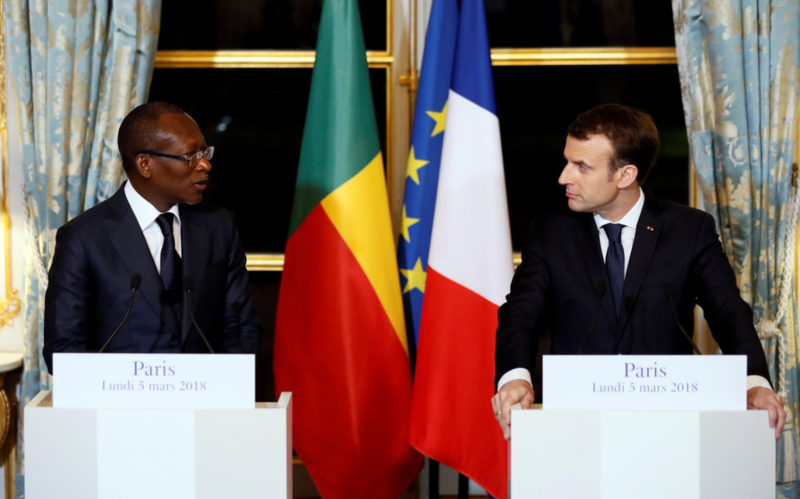A shift in attitudes towards colonial heritage?

French President Emmanuel Macron and President Patrice Talon of Benin hold a joint press conference after a meeting at the Elysee Palace in Paris, France, March 5, 2018. From csmonitor.com
The issue of colonial heritage is part of our current cultural zeitgeist, with increased public awareness of the ethical dimensions of cultural property disputes. In Berlin, a massive museum project is merging collections of the Ethnological Museum of Berlin and the Museum of Asian Art to create the Humboldt Forum, scheduled to open in 2019. Renowned art historian Bénédicte Savoy resigned from the project’s board of experts in July 2017 due to a lack of provenance research on sensitive objects, especially those emanating from Germany’s former African colonies. As Savoy wrote in an opinion piece in the Süddeutsche Zeitung, “I want to know how much blood is dripping from each artwork” (cited in English by dm.com here). She is now advising French president Emmanuel Macron, who shocked the museum world last fall by proclaiming that “African heritage cannot be a prisoner of European museums.” As I mentioned in an interview for The Christian Science Monitor, we may be seeing a generational shift in attitudes toward colonial heritage among key political and cultural figures. Deaccession from public collections is a very tricky business, however, and at this point it seems more likely that countries will reach agreements on temporary loans rather than full restitution. But watch this space.